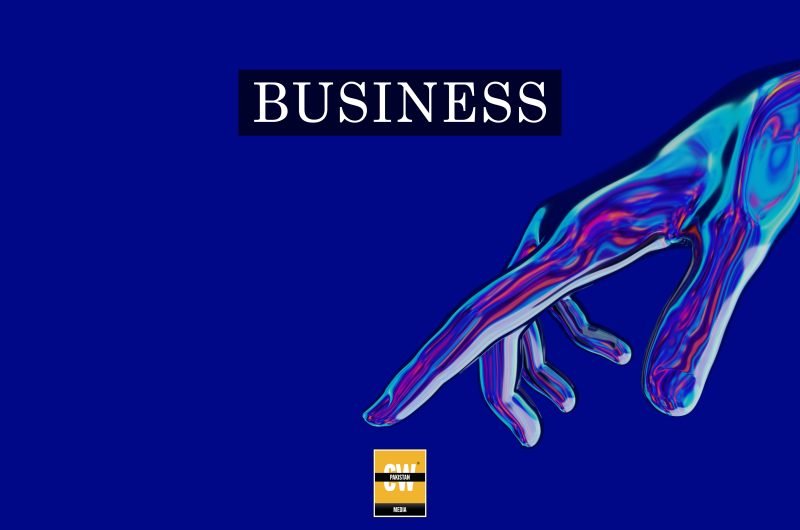Pakistan’s fashion retail market, valued at an estimated $10 billion, is undergoing a profound transformation, largely driven by the rapid expansion of e-commerce. The market is divided into two distinct segments: a $2.45 billion regulated market and a $7.6 billion unregulated market. The regulated market represents formal retail channels, while the unregulated market is comprised of informal, often cash-based transactions. The ongoing shift towards online shopping is bridging these two segments, offering consumers more accessible and inclusive options across various price ranges.
E-commerce platforms, particularly Daraz Pakistan, are playing a pivotal role in this transformation by reshaping the dynamics of fashion retail. Daraz, one of the leading online marketplaces in Pakistan, is not only facilitating the shift from offline to online shopping but is also creating a more streamlined experience for diverse consumer groups. The platform aims to replicate and enhance the offline shopping experience in a digital environment, catering to both luxury and budget-friendly options. As e-commerce continues to evolve, the platform is adapting to changing consumer behavior, focusing on convenience while aligning with modern trends.
The fashion retail cycle in Pakistan traditionally followed the country’s four-season model, with major purchases occurring every three months. However, the influence of global fashion trends has accelerated the pace, with brands now introducing micro-trends and capsule collections every month or two. This evolution has brought Pakistan’s fashion industry in line with global shifts toward immediacy and variety, where consumers demand fresh styles and quicker turnaround times.
The changing dynamics of Pakistan’s fashion retail scene are also driven by the preferences of younger consumers, particularly millennials and Gen Z. These demographics have increasingly embraced ready-to-wear (pret) clothing as a more practical and cost-effective alternative to custom-made garments. In contrast to older generations, who often preferred tailored clothes for everyday wear and special occasions, younger consumers prioritize convenience and affordability. The trend toward ready-to-wear clothing is rapidly gaining momentum, and currently, about 30% of Daraz’s fashion sales come from the pret category, while the remaining 70% is attributed to unstitched fabric. This shift highlights a growing demand for affordable, trendy, and time-saving options that suit modern urban lifestyles.
The shift to ready-to-wear clothing is also closely tied to broader societal changes, particularly the increasing participation of women in the workforce. As more women seek practical and fashionable clothing for work, the demand for ready-to-wear options that blend convenience and style has risen significantly. This cultural shift has led to a marked increase in the popularity of pret clothing, making it a dominant category within the market.
A major strategy employed by Daraz to strengthen Pakistan’s fashion retail ecosystem is its collaboration with small-scale manufacturers. These partnerships provide manufacturers with access to invaluable consumer data, which helps them tailor their products to meet current trends and consumer preferences. By working closely with these manufacturers, Daraz ensures that its platform remains stocked with trendy, affordable items that appeal to a wide audience. One notable example is the development of affordable three-piece suits, priced as low as PKR 599, which have led to a significant increase in user search views on the platform. Manufacturers have reported up to six-fold increases in orders, particularly during non-campaign periods, and the figures are even higher during major sales events like 11.11.
These collaborations go beyond just product supply; they involve sharing insights into design, quality assurance, and pricing strategies, all of which contribute to a sustainable and mutually beneficial relationship. Daraz’s pricing strategy is also crucial to its success. Products priced under PKR 1,000 have proven to convert casual browsers into buyers, an approach that resonates in a market where inflation has limited household budgets. Small-scale manufacturers that consistently provide high-quality, affordable products benefit from higher visibility in Daraz’s search algorithms, which leads to increased sales and long-term success.
Daraz’s platform also provides important insights into consumer behavior, as its user base is spread across Pakistan, with significant activity in key manufacturing cities like Faisalabad, Multan, and Sialkot. These areas contribute both to the supply and demand sides of the fashion market, with Daraz’s affordability positioning it as an accessible alternative to larger, luxury brands. With inflation pushing many consumers to prioritize essential spending, Daraz’s focus on affordable fashion provides a solution for a broader audience, making stylish clothing accessible to those who might otherwise struggle to afford it.
Although women’s fashion remains the dominant category on Daraz, the platform is increasingly expanding into other areas such as men’s fashion, footwear, and accessories. Daraz has worked to ensure that its sizing and quality standards align with those of top brands, ensuring a reliable shopping experience for customers. A standout product in the platform’s portfolio is lawn fabric, which remains a bestseller for nearly ten months of the year, even in colder regions during the winter. The enduring popularity of lightweight fabrics like lawn underscores the local climate’s influence on fashion preferences, making it a staple in Pakistani wardrobes.
Digital innovation is at the heart of Daraz’s success. The platform’s use of automation and AI-driven algorithms has allowed it to offer highly personalized shopping experiences. By analyzing browsing history, past purchases, and prevailing fashion trends, Daraz provides customers with curated product recommendations that align with their preferences, sizes, and even the season, enhancing the overall shopping experience.
Promotions and sales campaigns play an important role in engaging consumers. Daraz’s seasonal sales, such as “end-of-season” and “clearance” events, are strategically timed to coincide with consumer shopping habits, creating a sense of urgency and encouraging purchases. Additionally, Daraz’s mega sales campaigns, like 11.11 and 12.12, have become landmark events in Pakistan’s e-commerce calendar, driving sales and introducing new customers to online shopping.
The future of Pakistan’s fashion retail market looks bright as e-commerce continues to grow, driven by changing consumer preferences and the increasing adoption of digital shopping. Daraz Pakistan has set a new benchmark in the industry, offering a seamless online shopping experience while empowering local manufacturers to thrive in the digital age. By providing access to valuable consumer data, offering affordable and trendy products, and focusing on sustainability, Daraz is helping shape the future of fashion in Pakistan.
As internet penetration deepens and digital literacy improves, the shift towards online shopping is expected to accelerate, benefiting both consumers and manufacturers. Daraz’s model of fostering strong partnerships with small-scale manufacturers, offering affordable products, and embracing digital innovation ensures that the platform remains at the forefront of Pakistan’s fashion retail revolution, setting the stage for a more inclusive, accessible, and sustainable future.









